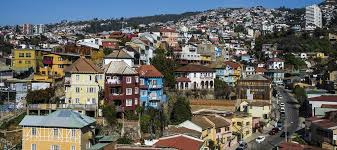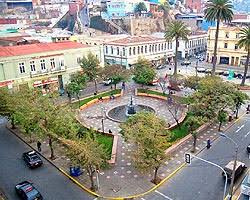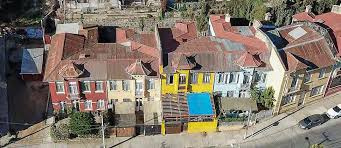What was Valparaíso’s role in Chile’s independence movement?

What was Valparaíso’s role in Chile’s independence movement?
What was Valparaíso’s role in Chile’s independence movement? Valparaíso’s role in Chile’s fight for independence is undeniable, as it became a central point for the struggle against Spanish rule.
From its strategic coastal location to its importance as a port city, Valparaíso helped shape the course of Chilean history during the early 19th century.
The city witnessed several key battles, naval operations, and political maneuvers, all contributing to the broader efforts that led to Chile’s independence from Spain in 1818.
Valparaíso’s significance was not only due to its geographical location but also its political and military importance.
As a key port, it became a base for both Chilean patriots and their adversaries. The city’s harbor served as a vital supply route, a place of refuge, and a launch point for naval operations.
As Chile’s economy and communications were centered around the port, Valparaíso naturally became a focal point for resistance and revolution during the independence movement.
Valparaíso’s Strategic Importance in the Early 1800s
In the early 1800s, Valparaíso was one of the most important cities in Chile, both economically and militarily. It served as the country’s primary port, through which imports, exports, and communication flowed.
This economic importance made Valparaíso a target for both Spanish and revolutionary forces during the war for independence.
As a port city, it was central to the movement of goods, soldiers, and information. Its location along the Pacific Coast gave it access to international trade and naval activity, positioning it as an ideal strategic asset for both the Spanish and the patriots seeking independence.
Valparaíso’s harbor allowed for the storage of supplies, while its maritime routes enabled communication with other independence movements in the region. This geographic advantage solidified its place at the heart of the struggle.
The Battle of Valparaíso and Its Impact
One of the key events in Valparaíso’s role in the independence movement was the Battle of Valparaíso in 1814. This naval confrontation played a pivotal role in the ongoing struggle between Chilean patriots and the Spanish Empire.
The Battle of Valparaíso occurred when Chile’s independence forces, led by Admiral Blanco Encalada, attempted to break Spanish naval control of the region.
Though the Chilean forces were ultimately defeated, the battle was significant in demonstrating the strength of Chile’s commitment to independence.
It also marked a turning point in the conflict, as the Chilean resistance continued to grow in strength, despite the setback. Even after the battle, Valparaíso remained a focal point for patriots seeking to disrupt Spanish control, with the city’s port serving as a crucial point of departure for future campaigns.
Valparaíso as a Refuge for Patriotic Forces
Valparaíso was more than just a strategic location; it also served as a refuge for Chilean independence fighters. After several key defeats, the city provided a safe haven for many patriots.
In the aftermath of the Battle of Rancagua in 1814, when Spanish forces gained control of Chile, many of the country’s leaders and soldiers fled to Valparaíso.
The city’s harbor allowed for the arrival of reinforcements from abroad, including the famed Argentine forces under General José de San Martín.
As a key port, Valparaíso acted as a point of regrouping for the revolutionary forces, providing a much-needed base for future operations. The city’s protection was essential for the continuation of the independence movement, ensuring that despite significant setbacks, the revolutionaries had a foothold to continue their efforts.
The Arrival of Foreign Support and the International Influence
Valparaíso was not only important to Chileans but also attracted foreign support. During the independence movement, the city became a point of contact for various international powers sympathetic to the Chilean cause.
The role of Valparaíso as a port city opened the door for international diplomacy and military assistance. Key figures in the independence movement, such as Bernardo O’Higgins and José de San Martín, worked closely with foreign governments, particularly the United Provinces of the Rio de la Plata (Argentina).
The city’s port allowed for the importation of weapons, military supplies, and reinforcements from Argentina and other countries sympathetic to the Chilean cause. This external support proved invaluable to the patriots, enabling them to bolster their forces and continue fighting against Spanish colonial rule.
Naval Power and the Role of the Chilean Navy
One of the most crucial aspects of Valparaíso’s involvement in Chile’s independence was its role in naval power. The Chilean Navy, based in the city, played a pivotal role in the eventual defeat of Spanish forces.
In the early 19th century, the Chilean Navy was underdeveloped but grew significantly in strength as the independence movement gained momentum.
Valparaíso became a strategic base for organizing naval operations, particularly for the Chilean fleet’s battles against Spanish forces.
The city hosted key naval commanders such as Lord Cochrane, a British officer who played an essential role in the Chilean Navy’s success.
With his help, the navy was able to carry out vital naval blockades, raids, and attacks on Spanish ships and ports, ensuring that Spain could not maintain control of Chile’s maritime routes.
The Political and Social Climate in Valparaíso
The political and social climate in Valparaíso during the independence movement was one of tension, division, and fervent patriotism. As a key port city, it was a microcosm of Chile’s broader political struggles.
The city itself was a site of frequent political debates, protests, and gatherings, with both royalists and patriots vying for influence.
The revolutionary fervor spread rapidly among Valparaíso’s population, with many working-class individuals joining the fight for independence.
The social makeup of the city, with a blend of Chileans, foreigners, and a growing population of revolutionaries, made Valparaíso an ideal place for organizing military campaigns and political movements.
Its role as a cultural and political center allowed the independence cause to gather momentum, despite the presence of Spanish loyalists.





Leave a Reply